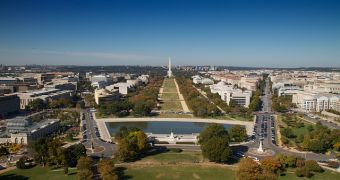Symantec’s Norton in collaboration with research organization Sperling’s BestPlaces made a list of the US cities where the chances are high to fall victim to cybercrime. Washington was named the riskiest city, followed by Seattle and San Francisco.
The top ten list of cities that have the highest number of cybercrime risk factors is completed by Atlanta, Boston, Denver, Minneapolis, Sacramento in California, Raleigh in N.C., and Austin in Texas.
However, the number of risk factors doesn’t mean that the computers of Internet users in these cities are necessarily infected with malware. Instead, it means that these cities offer cybercriminals the most opportunities.
“In our examination of the riskiest online cities, we’ve considered a number of factors that can potentially affect online safety,” Bert Sperling, founder of Sperling’s BestPlaces, said.
“By looking at data from consumer lifestyle habits as well as cybercrime data provided by Symantec, maker of Norton products, we’re able to provide a holistic view of the various factors that put a person at potential risk.”
After analyzing the usage of smartphones, tablets, laptops, Wi-Fi hotspots, and the attempted malware infections and web attacks, the researchers concluded that Washington DC is on the first position because in all the categories it was rated with a high risk level. Also, the second-highest usage of smartphones was reported in the nation’s capital.
Seattle, which last year was number one, is considered to be risky online because it also scored at a top in the majority of the surveyed categories. Along with San Francisco, it’s among the places where Wi-Fi hotspots are encountered in large numbers and people tend to spend a lot of time on the Internet.
At the other end of the pole, we find Detroit which was once again ranked as the safest city from an Internet-safety point of view.
Internet users worldwide, but especially those from the aforementioned cities, are advised to take a few simple precautions to protect themselves against malicious operations.
First and most important is awareness. A well-informed user is less likely to fall in a clever trap set up by cybercriminals. Secondly, individuals must proceed with caution when using Wi-Fi networks while performing sensitive tasks such as online banking, or while making purchases.
Finally, the use of a complex and unique password is always recommended, since this way, even if one of the passwords is fraudulently obtained by crooks, the others remain safe.

 14 DAY TRIAL //
14 DAY TRIAL //